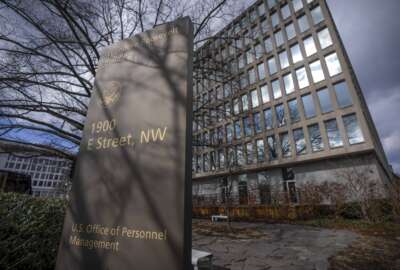Where’s the WPA when we need it?
Commentator Barlow Herget says we should look to history for lessons on the current economic situation.
By Barlow Herget
Commentator
State Government Radio
History, observed Mark Twain, doesn’t repeat itself but it can rhyme. And the sounds of the country’s debate over the economy are alarmingly like the ones that rang in the United States in 1937. Contemporary economists like to point out that uncompromising House Republicans in Washington have ignored this history. The Republicans are blinded by the large deficit numbers—brought on mostly by their own party and presidents in the last 30 years.
They, like many ideologues, see things in black and white, and for them, deficit spending is one of the blackest of government evils. This view also explains the Tea Party’s devotion to a constitutional amendment to balance the nation’s budget, which would cripple the government in times of war and depression.
These rigid Republicans prefer sending the country over a cliff and defaulting on its loans rather than meet the President halfway on raising the debt ceiling. To them, government, in general, is bad and somehow government jobs can be cut without consequences. Thousands of government layoffs explain why unemployment now is rising again in North Carolina and nationally.
To give them credit, these arch conservatives have changed the economic debate in Washington. Democrats have been cowed into trying to accommodate discredited theories that tax cuts will reduce the deficit and will quickly stimulate private sector jobs.
President Franklin Roosevelt in 1937 listened to similar cries to reduce the deficit and cut federal spending. Unemployment had dropped from 25 percent in 1933 to 12 percent in 1936, not including those working for the WPA and CCC. Treasury Secretary Henry Morgenthau Jr. told New York bankers that Roosevelt would make “a determined move toward a balanced budget.” Federal spending was slashed.
Guess what happened?
Job growth stalled. The stock market on Oct. 19, 1937, had its worst day since 1929. Industrial capacity, wrote one historian, “declined more abruptly than at any other time in the nation’s history.” Unemployment leaped to 19 percent by 1938. It was a depression within a depression. It was the same for Japan between 1997 and 2001. Why will that not happen again in 2011 on our present course?
The more worthwhile debate should be about creating jobs. The private sector, even with President George W. Bush’s irresponsible tax cuts, has not responded with thousands of new jobs. Only President Barack Obama’s modest stimulus in 2009 and spending to save the U.S. auto industry have worked to increase employment.
The Republican and now Democratic clamor for government contraction in Washington is rhyming louder and louder with history’s experience in 1937. That’s not a good sound for the country.
Copyright © 2024 Federal News Network. All rights reserved. This website is not intended for users located within the European Economic Area.





